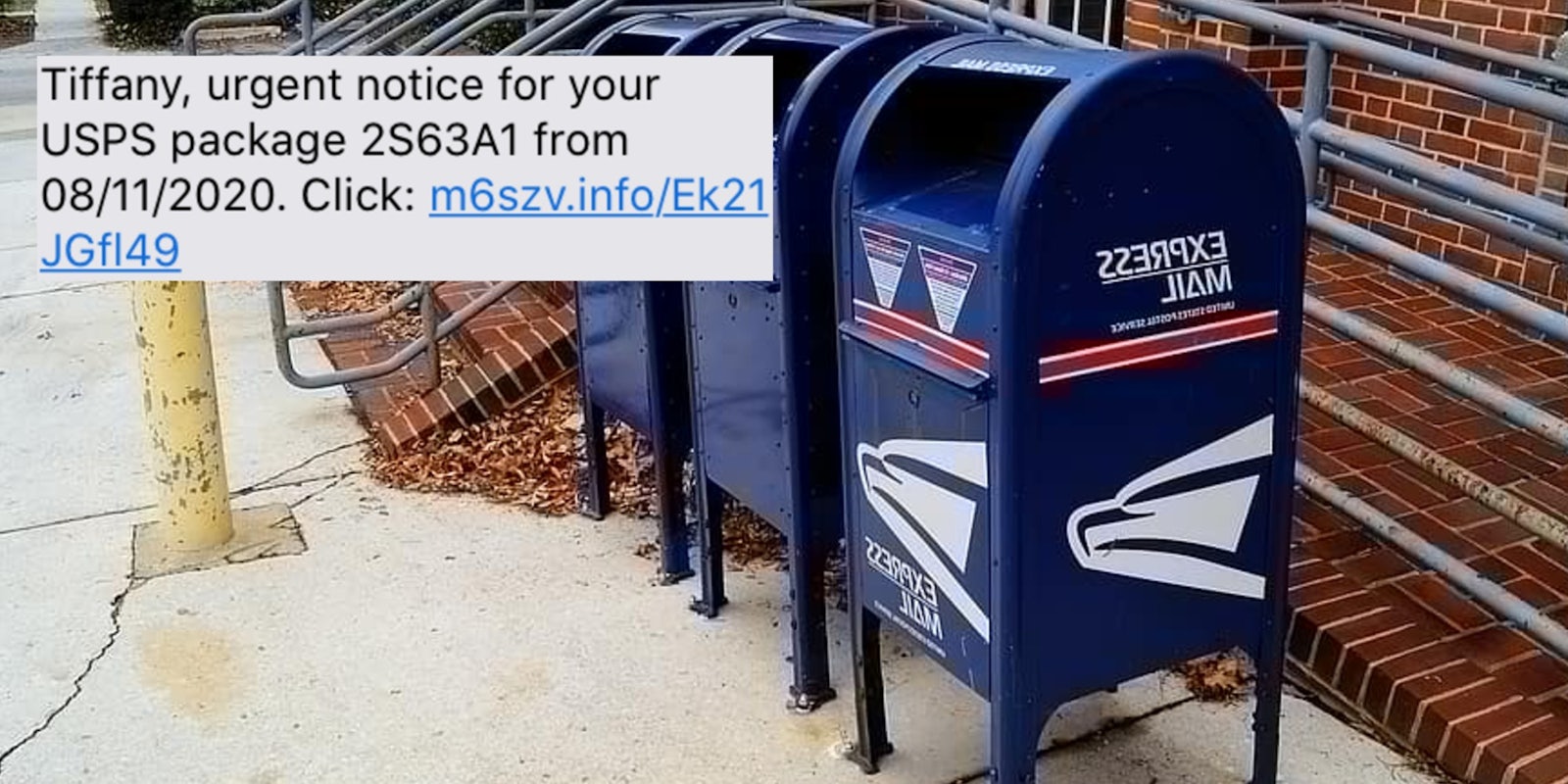Receiving USPS text messages about an unclaimed package? Don’t click the link.
Text messages purporting to be from the United States Postal Service (USPS) have been hitting phones all across the country this week, asking recipients to claim a package.
But the texts are not from the USPS and are part of a wide-scale phishing scam, designed to steal users’ personal information.
Reports of such texts have been flooding in on social media, with countless users alleging to have received the message.
The messages begin by using the recipients’ name before stating that they have an “urgent notification for the USPS delivery.”
The Better Business Bureau (BBB) has urged those who have received such texts to delete them immediately.
Clicking the link, according to Insider, redirects to a fake customer satisfaction survey that eventually asks users to provide their credit card information.
While such schemes are a common occurrence, the current political climate appears to be influencing the scam as well.
Viral posts on Facebook, Instagram, and Twitter are attempting to link the fake USPS texts to human trafficking.
“I got a weird text this morning and deleted it, only to find out later that it is a human trafficking set up,” @GID_it_done said.
Although it’s unclear where the claim originated, a viral post on Instagram alleges that the text is part of a “new sex trafficking method.”
“There is a new sex trafficking method where you will receive a text message saying that there was an issue with a package that you have purchased, whether the ‘problem’ is your package has been lost, damaged, etc,” the post claims. “The message will send you to a link to ‘track your package’ and apparently once you open the link your location will begin to be immediately tracked.”
The allegation that the phishing scam is tied to human trafficking is entirely false.
The incorrect claim has become so widespread, however, that anti-human trafficking organizations have been forced to release statements debunking the posts.
Polaris, the non-governmental agency that runs the U.S. National Human Trafficking Hotline, also called on Americans to stop spreading the claim.
“Polaris cautions against spreading stories with potentially misleading information about human trafficking recruitment tactics,” the agency said. “Such misinformation ultimately causes more harm than good.”
The texts have even caused a surge in reporting to Polaris, which the agency says endangers actual trafficking victims attempting to reach them.
For those concerned about missing an actual package, USPS offers an “Informed Delivery” service that lets users track all their packages and even view photographs of their incoming mail.


